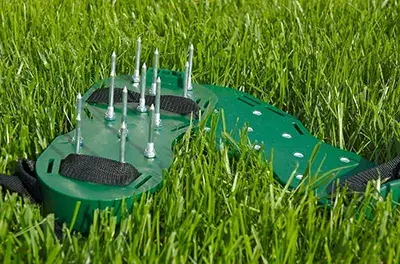

Turf fertilization contributes greatly to lawn color, density, uniformity, and growth. Property fertilized grass can compete with weeds and is able to recover from damage caused by environmental stresses faster than improperly fertilized lawns.
Is the grass in your yard yellow and have plants stopped growing? This may be a sign that there is a lack of sulfur in the soil. Soil is the foundation on which your yard and garden grows. Its composition can help or hinder plant growth.
A periodic soil test lets you catch nutrient deficiencies before they progress that far. Besides indicating nutrient deficiencies, a soil test can also provide information on soil acidity, the percentage of organic matter in your soil, and your soil’s texture. Soil pH is extremely important and directly affects nutrient availability. Plants can only absorb nutrients that are in water-soluble form and if the soil pH is too high or too low, the needed elements and compounds may remain insoluble, or incapable of being dissolved.
Adjusting soil pH for your lawn

Most garden soils have a pH between 5.5 and 8.0. This range is a result of many factors, including a soil’s parent material and the amount of yearly rainfall an area receives.
The pH number helps your determine when and how to adjust your garden soil’s pH level. If the pH level is below 6, the soil is too acidic, and you need to add ground limestone. If the measurement is above 7.5, the soil is too alkaline for most vegetables, and you need to add soil sulfur. Most plants thrive in slightly acidic soil because the pH affords them good access to all nutrients.
Benefits of sulfur for your lawn
Sulfur is a favored garden remedy against many pests and diseases such as the dreaded black spot disease. Spider mites ruin house and garden plants by feeding on the plants, thereby preventing plants from getting the  water and nutrients needed to stay alive.
water and nutrients needed to stay alive.
Sulfur isn’t only for your lawn, you can also use sulfur to change the appearance of flowers. Fertilize hydrangeas as normal and add small amounts of sulfur to the fertilizer mix periodically to help hydrangeas remain blue. Sulfur, pH, and SOM (sulfur organic matter) test recommendations can keep you from routinely applying fertilizer that is not needed, and save you money. They can also help keep your lawn and ornamentals looking their best, and help you raise productive crops.
Give your lawn what it needs to safely survive the winter and renew itself in spring. Contact a local lawn care professional to start working with the pH levels in fall or early winter in central Texas to ensure the soil is ready for planning in the next season.





